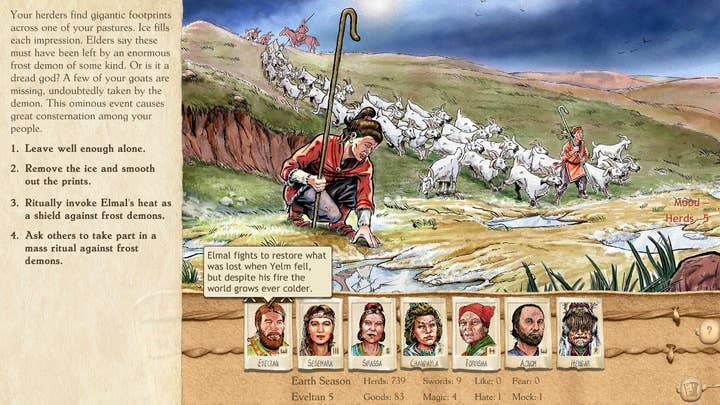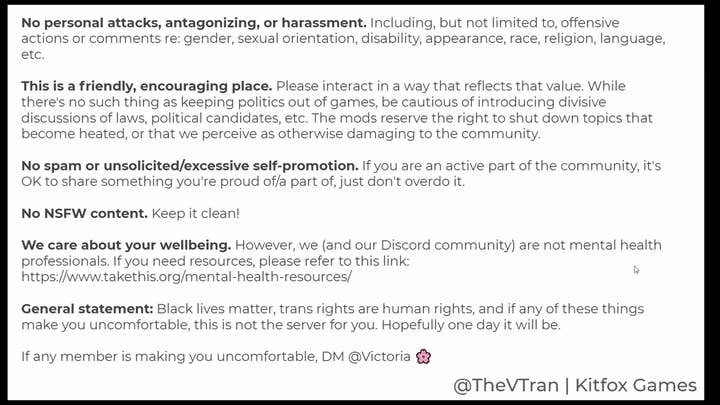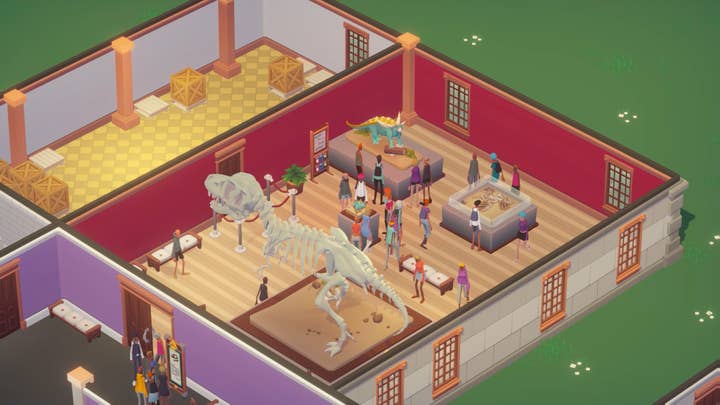How to design better communities
During Ludicious X, Kitfox Games' Victoria Tran explained how the right ruleset can lead your community away from toxicity
Building and maintaining a community has become an essential marketing tool for games of all types. Online platforms where enthusiasts can share their passion have existed for a long time -- those of us who remember the forums from the early 2000s can testify. But, with the advent of social media, community management has since professionalised and taken over a myriad of platforms, with Discord currently leading the charge.
But creating a kind and vibrant community online is a tough job. There's no sugarcoating it: the internet can be a pretty terrible place. In a Ludicious X talk last month, Kitfox Games' communications director Victoria Tran invited game developers to imagine their ideal community.
While this may sound like an odd exercise, she explained it can be a way to help you set objectives for the community you want to create. Really identifying goals, rather than thinking in abstract terms, is the first step to designing better communities, which was the core topic of her talk.
"[Developers] neglect considering what kind of belongingness they want from their communities"
"No matter what game we publish or develop, the community the [players] decide to join is a welcoming and friendly place," Tran said. "So I want to talk about designing better communities from a more macro perspective. I don't think we should create spaces out of thin air or think banning bad people is all there is to real community development. We need goals. And we need to know what an ideal community looks like and how it functions, and why we want it to be this way.
"When I talk to devs, they tend to know they want a community, but neglect considering what kind of belongingness they want from their communities. And then those who do consider it might decide they want fluffy things like: 'positive', 'healthy', 'engaged', 'nice', and so many other things. Which is great but doesn't actually describe what actions to take. So we're going to talk about how we get there."
Tran explored how developers should be thinking in terms of creating a social system, and write rules accordingly, as well as explained the payoffs she's witnessed by doing these things. But she prefaced her talk with some caveats.
"One, these things will not automatically make your community safer. This takes time and continuous effort. Two, this isn't some mass strategy to get user retention and hit your KPIs. And while overall it will help retention over time, it will not look like this at first.
"As with anything, there are a ton of variables that you'll have to think about, depending on team size, game size, and community size. Our community strategies may only have been successful because we're relatively small. So giant communities probably need additional strategies."

Think in terms of social system, not superficial rules
When it comes to framing your community, it's important to think in terms of social systems, rather than catch-all rules. Rules are taken for granted in communities, Tran said, because they're so prevalent. But that doesn't mean you shouldn't take particular care when coming up with yours.
"[There are] rules that I think aren't as helpful as people think -- don't be a dick, just be nice, be respectful, things like that. These aren't productive or actually informative, and often result in people disrupting the rule's meaning when they break it. And honestly, not being a bad person in a community is the bare minimum someone should aim for.
"The ultimate final tone [of your community] is dependent on the structure of the space that you set up. I'm not okay with superficial notions of 'being kind to one another' or 'being good to one another' because that doesn't suffice. So when we create rules, it means we need to set up our spaces to be encouraging, empathetic, and accountable.
"To better understand this, I think of rules and communities as social systems. Understanding social systems is key to understanding communities. Social systems are the relationships between individuals, groups and institutions. They basically can predict and shape your behaviour."
"I'm not okay with superficial notions of 'being kind to one another' because that doesn't suffice"
As an example, Tran explained that the way you interact at work is different from how you behave at home. The same goes for various spaces such as a hospital, a library, a school or a museum.
"These systems have their own set of rules that allow the group and institution as a whole to function smoothly," she continued. "Breaking the rules causes chaos or resistance. And game communities are exactly the same.
"In the book 'The Forest and the Trees' by Allan G Johnson, he uses the board game Monopoly as an example. Monopoly is a social system with rules. Following these rules offer the path of least resistance to playing the game, but following them also impacts player behaviour. Players are led down one path, and that's greed. The point isn't if the game is fun or not, but that the rules encourage certain behaviours for participation regardless of your own personal value. And if you refuse to abide by them, like by cheating, the other players will probably get angry at you, and they'll kick you out.
"So when we talk about social systems, it's important to consider what you, as a person privileged to be setting the rules, do with this. What outcomes are you looking for with your ruleset? What is the path of least resistance for community members? For Monopoly, it's greed, and for Kitfox, it's kindness."

Designing your ruleset
Once you've thought about your ideal community and what sort of social system you're setting, then comes the next step: actually writing your ruleset and thinking about how your rules are going to be implemented.
Tran identified universal principles when it comes to rules, inspired by the World Justice Project:
- They're clearly defined. Don't mince words, make them really easy to understand.
- They're publicised, they're easy to find and see.
- They're stable, they don't change frequently.
- They're just, so they seem reasonably fair.
- They're applied evenly and quickly to everyone.
- Have a framing rule
"Every space is different and the rules should evolve as your community does"
Your ruleset should first contain a rule that frames all the others. It's usually a very basic one that you'd find frequently and encompasses things such as: no harassment, no NSFW content, no spam.
"I love to have a framing rule in my ruleset," Tran said. "It's a point in the ruleset [that sets] my expectations for how I want the community to vibe and interact with each other.
"I think it really sets up how people understand what I'm expecting of them, in terms of not just being a bad person -- I want them to be proactively great. If they aren't able to communicate with each other effectively then I think it's totally okay to shut things down when you need it to be."
- Have rules that are specific to your community
But an important part of your ruleset is that it needs to fit the needs of your own community -- you shouldn't just copy and paste the rules from another studio.
"As an example, these are the rules in the Kitfox Games' Discord (see image below). I want us to be more aware of the wording we use with rules creation and, while it's okay to reference rules from other studios, I think you should definitely change them to fit your own community. Every space is different and the rules should evolve as your community does."

One of Kitfox's rules that's fairly specific to the studio states that, while the team obviously care for everyone's wellbeing, they are not mental health professionals.
"I've noticed a lot of people come to us and trust us with problems -- and that's really flattering in its own way, but no one in the community is a mental health professional and it'd be really irresponsible to fix anything or to think you can," Tran said. "So, I usually add a point about mental health.
"This kind of falls into evolving your rules to fit the needs of your community. The Kitfox Discord didn't start off with this rule. It was just something that I noticed more and more and you have to preemptively realise: 'Oh, this is probably something that I need to have in my space to make sure it functions smoothly.'"
- Consider having a value statement
If your studio strongly believes in certain values, these principles should be made explicit in your ruleset. For instance, Kitfox Games' Discord server includes a statement inspired by rules set by Marcela Huerta, community manager at indie studio KO_OP: "Black lives matter, trans rights are human rights, and if any of these things make you uncomfortable, this isn't the server for you. Hopefully one day it will be."
"I love a value statement," Tran said. "I think it just really sets up the server. It's for people to understand what you're all about. When people know what they're getting into, it makes it way easier in terms of moderating."

- List out consequences and nip toxicity at the bud
Your ruleset should also include the possible consequences if a rule is not respected, as well as someone they can contact if there's any issue. And that person shouldn't be a volunteer moderator, Tran insisted.
"It should be someone paid to handle this," she said. "There needs to be someone who is there to enforce the rules for this to work. You can't have [the ruleset] just be there and do nothing with it or be afraid of rule enforcement. It helps drive more productive conversations and withdraw those that are there under false pretenses. Every forum needs rules to maintain its purpose and functionality.
"And when rules are broken, what often helps is a DM their way, with an explanation or warning before any action is taken, rather than an outright call out for everyone to see. Shame and embarrassment in public is usually more effective for making the person feel defensive, rather than receptive to change."
"Membership is a conditional privilege that you can remove at any time and you get to set the tone"
If the context allows it, give community members a chance to improve and learn. It's usually worth it, Tran said.
"And if someone's coming out of anger, see if you can talk to them in a productive way and leave them to understand the tone of the community. And if they still don't understand, it might not be the community for them. Membership is a conditional privilege that you can remove at any time and you get to set the tone.
"If it's a troll, someone just purposely there to cause chaos, you can't work with that. It's really important as a rule setter to be decisive. Basically: nip toxic members at the bud. Don't keep them around because they talk and contribute to the space, and you're afraid of silence. They take up space and drive away more genuinely interested members."
Pay offs and why it works
Having explained how to set up your social system, Tran took the time to talk about why it was so important to set up these rules and the positive outcomes she's personally seen out of it.
"You will need to be offline for many reasons: mental health, you're at a convention, vacation, you're busy. And a good community shouldn't collapse because you're not around. The better your rules, the better your community can sustain itself as they understand what is expected from them and from others.
"And it works. A lot of people have looked into the intricacy of banning hate speech or setting clear rules, and how that helps communities. The most recent case was Reddit. Reddit has definitely been trying to work on their hate speech and the kind of subreddits that are around.
"[The more] you solidify your community pillars and uphold your community to the standard you set, the better your reputation becomes. So we've had people join Kitfox purely because they heard it was a positive place to be in, and that's really nice. And most newcomers see how people interact, see the reputation the community has and naturally go along with this. It's a really pleasant circle of events.
"Designing kinder communities is not just about risk management, its lifetime value will reward you and people who want to interact [with you], and they'll stick around for your future games to come, even if it's not necessarily their thing."
Our GamesIndustry.biz Academy guides about how to make money from video games cover a wide array of topics, from in-depth Steam guides, to how to create a successful Patreon or tips from Cassia Curran about how to conduct market analysis. You can read all our guides about selling games on this page.

